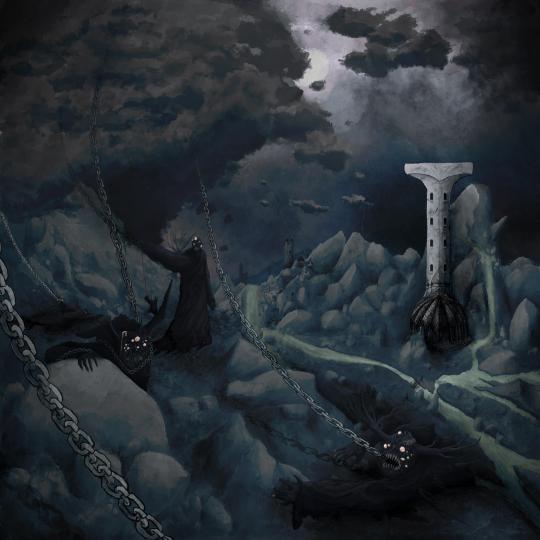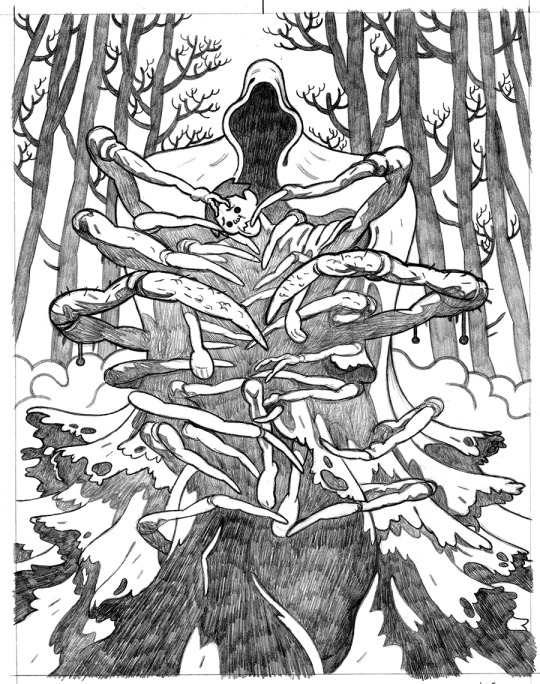#afflictio
Link
0 notes
Photo


#akeussel#art#artist#artists on tumblr#drawing#Illustration#Fanart#graphite drawing#afflictio#the witcher#gwent#card#video games#my favourite card#cd projekt red#gwynt
3K notes
·
View notes
Text
Paroxusmós
La vie est à portée de mains. Mais pas dans ce monde.

Ⓒ photo : Emil Melmoth
#paroxusmós#laquietude#laquietudeducornu#DCLXVI#the goat#thegoat#emil melmoth#afflictio#affliction#at the end of it all#la haine des hommes#par la haine des hommes#goth#gothic#gothique#agnus diabolus#agnusdiabolus
4 notes
·
View notes
Text

Whoops i forgot to post. AGAIN. Absolutely AWFUL editing by @auroa-rose thanks for making it look really bad
#art#artwork#my art#p♡g☆#oc#traditional art#caine afflictio#ngod ar ep 4: philia#nil/moon#laniakiia#lania angel#lucangelos terrastell#prismacolor pencils#orange#they use all pronouns btw#🎀✨#ngod ar
32 notes
·
View notes
Link
Don’t really use Tumblr much anymore but one of my bands did this if you’re looking for something to hectically cry to, if you’re into it and don’t mind sharing it I’ll treat you to one CocoChoc chocolate flavoured coconut water and possibly 35 cents if I have it on me at the time
#emo#post-hardcore#alternative#being as an ocean#my chemical romance#bring me the horizon#casey#la dispute#the amity afflictio#hotel books#citizen#balance and composure#australian#touche amore#counterparts
2 notes
·
View notes
Text
Also since I'm on a Hamlet streak I offer this, the ending song to Branagh's adaptation, as an interesting gloss on the story. (also it's Patrick Doyle's music and Placido Domingo singing so you know how can you go wrong?)
youtube
Lyrics:
Diligite justitiam
O judices terrae
Love justice
O judges of the earth
Justorum animae in manu Dei sunt
Et non tanget illos tormentum mortis
The souls of the just are in the hand of God
And the torment of death shall not touch them
Visi sunt oculis insapientium mori
Et aestimata est afflictio exitus illorum
-- illi autem sunt in pace
To the eyes of the unwise they seemed to die
And their ending is thought to be suffering
-- but they are at peace
Tyrannus impius non habet spem:
Et si quidem longae vitae erit
In nihilum computabitur
The impious tyrant has no hope:
And if any man should have long life
It will be accounted as nothing
Princeps autem justus
Illi autem sunt in pace
But the just prince
He is at peace
7 notes
·
View notes
Text
The fact that Christian ethics leads to collisions of duty speaks in its favour. By engendering insoluble conflicts and consequently an afflictio animae, it brings man nearer to a knowledge of God. All opposites are of God, therefore man must bend to this burden; and in so doing he finds that God in his “oppositeness” has taken possession of him, incarnated himself in him. He becomes a vessel filled with divine conflict. We rightly associate the idea of suffering with a state in which the opposites violently collide with one another, and we hesitate to describe such a painful experience as being “redeemed.” Yet it cannot be denied that the great symbol of the Christian faith, the Cross, upon which hangs the suffering figure of the Redeemer, has been emphatically held up before the eyes of Christians for nearly two thousand years. This picture is completed by the two thieves, one of whom goes down to hell, the other into paradise. One could hardly imagine a better representation of the “oppositeness” of the central Christian symbol.
-- C. G. Jung, Answer to Job
7 notes
·
View notes
Photo

“Afflictio Gigas” by me (@ritualseasonmedia) Deep Thoughts Music
0 notes
Photo

THE BOOK OF ECCLESIASTES- From The Douay-Rheims Bible - Latin Vulgate
Chapter 8
INTRODUCTION
This Book is called Ecclesiastes, or the preacher, (in Hebrew, Coheleth) because in it Solomon, as an excellent preacher, setteth forth the vanity of the things of this world, to withdraw the hearts and affections of men from such empty toys. Ch. --- Coheleth is a feminine noun, to indicate the elegance of the discourse. It is very difficult to discriminate the objections of free-thinkers from the real sentiments of the author. It is most generally supposed that Solomon wrote this after his repentance; but this is very uncertain. S. Jerom (in C. xii. 12.) informs us that the collectors of the sacred books had some scruple about admitting this; and Luther speaks of it with great disrespect: (Coll. conviv.) but the Church has always maintained its authority. See Conc. v. Act. 4. Philast. 132. C. --- It refutes the false notions of worldlings, concerning felicity; and shews that it consists in the service of God and fruition. W.
The additional Notes in this Edition of the New Testament will be marked with the letter A. Such as are taken from various Interpreters and Commentators, will be marked as in the Old Testament. B. Bristow, C. Calmet, Ch. Challoner, D. Du Hamel, E. Estius, J. Jansenius, M. Menochius, Po. Polus, P. Pastorini, T. Tirinus, V. Bible de Vence, W. Worthington, Wi. Witham. — The names of other authors, who may be occasionally consulted, will be given at full length.
Verses are in English and Latin. HAYDOCK CATHOLIC BIBLE COMMENTARY
This Catholic commentary on the Old Testament, following the Douay-Rheims Bible text, was originally compiled by Catholic priest and biblical scholar Rev. George Leo Haydock (1774-1849). This transcription is based on Haydock's notes as they appear in the 1859 edition of Haydock's Catholic Family Bible and Commentary printed by Edward Dunigan and Brother, New York, New York.
TRANSCRIBER'S NOTES
Changes made to the original text for this transcription include the following:
Greek letters. The original text sometimes includes Greek expressions spelled out in Greek letters. In this transcription, those expressions have been transliterated from Greek letters to English letters, put in italics, and underlined. The following substitution scheme has been used: A for Alpha; B for Beta; G for Gamma; D for Delta; E for Epsilon; Z for Zeta; E for Eta; Th for Theta; I for Iota; K for Kappa; L for Lamda; M for Mu; N for Nu; X for Xi; O for Omicron; P for Pi; R for Rho; S for Sigma; T for Tau; U for Upsilon; Ph for Phi; Ch for Chi; Ps for Psi; O for Omega. For example, where the name, Jesus, is spelled out in the original text in Greek letters, Iota-eta-sigma-omicron-upsilon-sigma, it is transliterated in this transcription as, Iesous. Greek diacritical marks have not been represented in this transcription.
Footnotes. The original text indicates footnotes with special characters, including the astrisk (*) and printers' marks, such as the dagger mark, the double dagger mark, the section mark, the parallels mark, and the paragraph mark. In this transcription all these special characters have been replaced by numbers in square brackets, such as [1], [2], [3], etc.
Accent marks. The original text contains some English letters represented with accent marks. In this transcription, those letters have been rendered in this transcription without their accent marks.
Other special characters.
Solid horizontal lines of various lengths that appear in the original text have been represented as a series of consecutive hyphens of approximately the same length, such as ---.
Ligatures, single characters containing two letters united, in the original text in some Latin expressions have been represented in this transcription as separate letters. The ligature formed by uniting A and E is represented as Ae, that of a and e as ae, that of O and E as Oe, and that of o and e as oe.
Monetary sums in the original text represented with a preceding British pound sterling symbol (a stylized L, transected by a short horizontal line) are represented in this transcription with a following pound symbol, l.
The half symbol (1/2) and three-quarters symbol (3/4) in the original text have been represented in this transcription with their decimal equivalent, (.5) and (.75) respectively.
Unreadable text. Places where the transcriber's copy of the original text is unreadable have been indicated in this transcription by an empty set of square brackets, [].
Chapter 8
True wisdom is to observe God's commandments. The ways of God are unsearchable.
[1] The wisdom of a man shineth in his countenance, and the most mighty will change his face.
Sapientia hominis lucet in vultu ejus, et potentissimus faciem illius commutabit.
[2] I observe the mouth of the king, and the commandments of the oath of God.
Ego os regis observo, et praecepta juramenti Dei.
[3] Be not hasty to depart from his face, and do not continue in an evil work: for he will do all that pleaseth him:
Ne festines recedere a facie ejus, neque permaneas in opere malo : quia omne quod voluerit faciet.
[4] And his word is full of power: neither can any man say to him: Why dost thou so?
Et sermo illius potestate plenus est, nec dicere ei quisquam potest : Quare ita facis?
[5] He that keepeth the commandments shall find no evil. The heart of a wise man understandeth time and answer.
Qui custodit praeceptum non experietur quidquam mali. Tempus et responsionem cor sapientis intelligit.
[6] There is a time and opportunity for every business, and great affliction for man:
Omni negotio tempus est, et opportunitas : et multa hominis afflictio,
[7] Because he is ignorant of things past, and things to come he cannot know by any messenger.
quia ignorat praeterita, et futura nullo scire potest nuntio.
[8] It is not in man's power to stop the spirit, neither hath he power in the day of death, neither is he suffered to rest when war is at hand, neither shall wickedness save the wicked.
Non est in hominis potestate prohibere spiritum, nec habet potestatem in die mortis : nec sinitur quiescere ingruente bello, neque salvabit impietas impium.
[9] All these things I have considered, and applied my heart to all the works that are done under the sun. Sometimes one man ruleth over another to his own hurt.
Omnia haec consideravi, et dedi cor meum in cunctis operibus quae fiunt sub sole. Interdum dominatur homo homini in malum suum.
[10] I saw the wicked buried: who also when they were yet living were in the holy place, and were praised in the city as men of just works: but this also is vanity.
Vidi impios sepultos, qui etiam cum adhuc viverent in loco sancto erant, et laudabantur in civitate quasi justorum operum. Sed et hoc vanitas est.
[11] For because sentence is not speedily pronounced against the evil, the children of men commit evils without any fear.
Etenim quia non profertur cito contra malos sententia, absque timore ullo filii hominum perpetrant mala.
[12] But though a sinner do evil a hundred times, and by patience be borne withal, I know from thence that it shall be well with them that fear God, who dread his face.
Attamen peccator ex eo quod centies facit malum, et per patientiam sustentatur; ego cognovi quod erit bonum timentibus Deum, qui verentur faciem ejus.
[13] But let it not be well with the wicked, neither let his days be prolonged, but as a shadow let them pass away that fear not the face of the Lord.
Non sit bonum impio, nec prolongentur dies ejus, sed quasi umbra transeant qui non timent faciem Domini.
[14] There is also another vanity, which is done upon the earth. There are just men to whom evils happen, as though they had done the works of the wicked: and there are wicked men, who are as secure, as though they had the deeds of the just: but this also I judge most vain.
Est et alia vanitas quae fit super terram : sunt justi quibus mala proveniunt quasi opera egerint impiorum : et sunt impii qui ita securi sunt quasi justorum facta habeant. Sed et hoc vanissimum judico.
[15] Therefore I commended mirth, because there was no good for a man under the sun, but to eat, and drink, and be merry, and that he should take nothing else with him of his labour in the days of his life, which God hath given him under the sun.
Laudavi igitur laetitiam; quod non esset homini bonum sub sole, nisi quod comederet, et biberet, atque gauderet, et hoc solum secum auferret de labore suo, in diebus vitae suae quos dedit ei Deus sub sole.
[16] And I applied my heart to know wisdom, and to understand the distraction that is upon earth: for there are some that day and night take no sleep with their eyes.
Et apposui cor meum ut scirem sapientiam, et intelligerem distentionem quae versatur in terra. Est homo qui diebus et noctibus somnum non capit oculis.
[17] And I understood that man can find no reason of all those works of God that are done under the sun: and the more he shall labour to seek, so much the less shall he find: yea, though the wise man shall say, that he knoweth it, he shall not be able to find it.
Et intellexi quod omnium operum Dei nullam possit homo invenire rationem eorum quae fiunt sub sole; et quanto plus laboraverit ad quaerendum, tanto minus inveniat : etiam si dixerit sapiens se nosse, non poterit reperire.
Commentary:
Ver. 1. Most. Sept. "he whose face is impudent, shall be hated." The truly wise and virtuous man is always polite and affable. C. --- As we may form a probable conjecture of a person's disposition from his countenance, so we may judge of man's virtue by their actions. They are right and meritorious when the intention is good, (W.) and the works themselves blameless.
Ver. 2. I. Prot. add, "counsel thee, to keep, &c. "Obey the king and God." H. 1 Pet. ii. 17. --- Solomon proposes his own example, or speaks in the name of the just. --- God. The law of Moses, confirmed with an oath, or the engagement to be faithful to the king. 2 K. v. 3. 1 Par. xxix. 24.
Ver. 3. Face. This courtiers observe, while many Christians neglect God. --- Work. Defend not what has been said or done amiss.
Ver. 4. So? The eastern kings rule with absolute sway. Prov. xvi. 14.
Ver. 5. Answer. Heb. "judgment." He knows when to reprove even kings with effect; like Nathan, Elias, or S. Ambrose. 2 K. xii. 1. and 3 K. xviii. 17.
Ver. 6. Man. Solomon often reminds him of his misery. Sept. and Theod. "man is possessed of much knowledge," as they read dahth for rahth. C.
Ver. 7. Past. Prot. and Sept. "that shall be." H.
Ver. 8. Spirit from leaving the body, or the wind from blowing. There is no quarter given by death; so the wicked cannot escape vengeance.
Ver. 9. Hurt. Those who are despised in elevated situations, might have been happy in obscurity.
Ver. 10. Works. In life and death hypocrites are mixed with the unjust; and this excites indignation.
Ver. 11. Fear. Thus they abuse the patience of God, and grow worse, because he is good. His time will come. Apoc. xvi. 15 Eccli. v. 4. 2 Pet. iii. 10.
Ver. 12. Face. If God shew such clemency to the wicked, will he disregard his servants? Greek interpreters have read in a different meaning. C. --- Sept. "the sinner has done evil from that time, and for a long while," (T.) &c. See S. Jer. H.
Ver. 13. Let. Or, Heb. "it shall not," &c. Prot. H. --- Faith evinces that the wicked will be punished. --- But. Heb. "like a shadow." Sept. "under the shade," in prosperity.
Ver. 14. Vain, or afflicting. Hence some have denied Providence. Jer. xii. 1. C.
Ver. 15. No good for a man, &c. Some commentators think the wise man here speaks in the person of the libertine, representing the objections of these men against divine Providence, and the inferences they draw from thence, which he takes care afterwards to refute. But it may also be said, that his meaning is to commend the moderate use of the goods of this world, preferably to the cares and solicitudes of worldlings, their attachment to vanity and curiosity, and presumptuously diving into the unsearchable ways of divine providence. Ch. C. ii. 24. and iii. 12. Eccli. xv. C. --- Felicity is not attached to temporal prosperity, nor are the afflicted always miserable. W.
Ver. 16. Distraction of politicians, (Grot.) and of all human affairs.
Ver. 17. Reason. We know in general that God does all for his own glory, and for the welfare of his elect. But we cannot account for his treatment of mankind in particular cases. Rom. xi. 33. S. Jer. C. - Say. Sept. "speak what thing soever, that he may know he," &c. H.
2 notes
·
View notes
Photo

#akeussel#art#artist#artists on tumblr#drawing#illustration#croquis#sketch#wip#fan art#les hommes crabes#graphite drawing#afflictio#the witcher#gwent#card#video games#my favourite card#cd projekt red
273 notes
·
View notes
Text
3x3cut13 replied to your post: This is no+t the night fo+r my dashbo+ard to+ be...
so do3s m1n3.
What’s yo+ur afflictio+n?
0 notes
Video
youtube
Perfection does exist. This is like totally me and bae when we were younger, and I hope our future will end up together as well..
#the amity affliction#amity#afflictio#affliction#music#sad#video#shine on#the amity affliction lyrics#lyrics#song#official#tumblr#depressed#heart#love#together#bae
0 notes